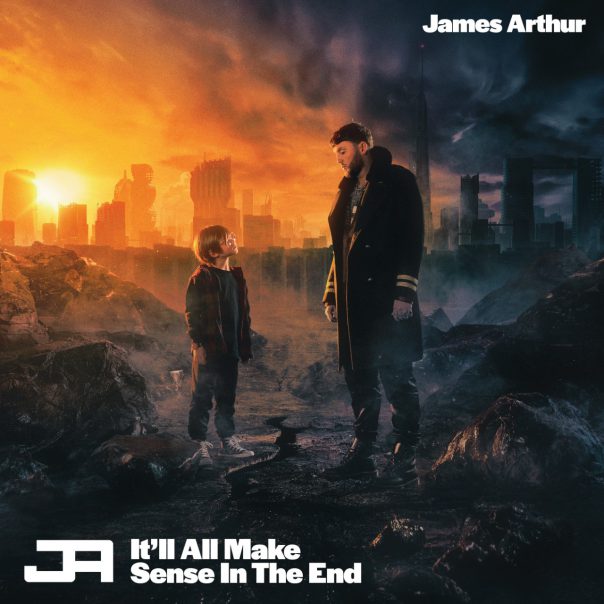ALBUM REVIEW: James Arthur learns ‘It’ll All Make Sense In The End’

James Arthur, It’ll All Make Sense In The End
“The X Factor UK” winner James Arthur, best known in the United States for his tender and widely played “Say You Won’t Let Go,” is gearing up to release his fourth album. It’ll All Make Sense In The End looks at both the past and future to find comfort in his presence.
It’ll All Make Sense In The End
James Arthur
Columbia, Nov. 5
7/10
Coming two years after You, his newest finds the singer-songwriter ruminating on the changes and breakups he’s undergone in the last few years, and wondering where he’ll end up in the next couple. The tracks tend to follow this thread, with Arthur taking aspects of life and looking at them going forward to backward.
The album opens with “Running Away,” which begins slowly and reflectively with James Arthur singing about bad decisions and smoking himself into oblivion, before it kicks up in pace during the chorus. As he sings, he begins to find himself continuously “always running away from you.”
He delivers the lyrics in a style that blends rapping with singing, digging his voice deep during choruses while delivering with speed during the verses. It’s a style he fell back into while writing the album.
Highlights include “Last of the Whiskey,” where he misses his girlfriend, who always seems to be changing and moving while he stays the same. “It’s been one hell of a ride and I don’t wanna get off,” he wails before the chorus. Then on “4,000 Miles,” he employs a snapping electronic beat to support him as his girl tries to break and bruise him inside. The chorus swells and he belts the lyrics before a repetitive refrain begins and leads into the verses. The best part, however, is the short bridge, where, with a hushed voice, he sings, “Don’t come, my house/ Whiskey, blackout/ Smoke up, pass out.”
On “Emily,” the most optimistic track of there bunch, he thinks about what it would be like to become a father and have a family one day. He compares himself to a Rolling Stone, always playing a sold-out show. Despite this, he lets a hypothetical baby, “Emily,” know that, “When I hear you cry, I sing you back to sleep/ Do you know you inspire all my melodies?”
“SOS” at times sounds like a pop-rock song from the early 2000s. Arthur pushes an “SOS” deep from his throat, sounding strained and desperate as he begs for his soul to be saved. “Ooh, it’s you I’m forever in debt to/ Never been the same since the day that I met you/ I’m going down, can you come to my rescue?” he asks.
Arthur must have gone through some really dramatic breakups to feel this torn up, but listeners are left guessing as to the specifics. The song could have included more of a narrative and a little less outright heartbreak and belting.
On tracks like “Déjà Vu,” he crosses into grime territory (a British rap style that emerged early in the 2000s), with his voice distorted by an electronic tinge as he navigates the verses. Though the chorus’ lyrics sound recycled (“No matter what I do, I keep falling back to you/ Oh oh oh, it’s déjà vu-u-u”) the grinding guitar solo and energy keeps up a good momentum. The style is heard again on “Never Let You Go,” which starts with a shaky electronic beat over James Arthur singing about a heavy heart and empty house, though less with less rapping this time over.
It’ll All Make Sense In The End is by no means a bad album. Though some tracks are indistinguishable from the previous or following, he pours his heart into the lyrics and gives them enough personal touches to make it worth a listen. And get ready for some raw, British belting.
Follow Domenic Strazzabosco at Twitter.com/domenicstrazz and Instagram.com/domenicstrazz.
